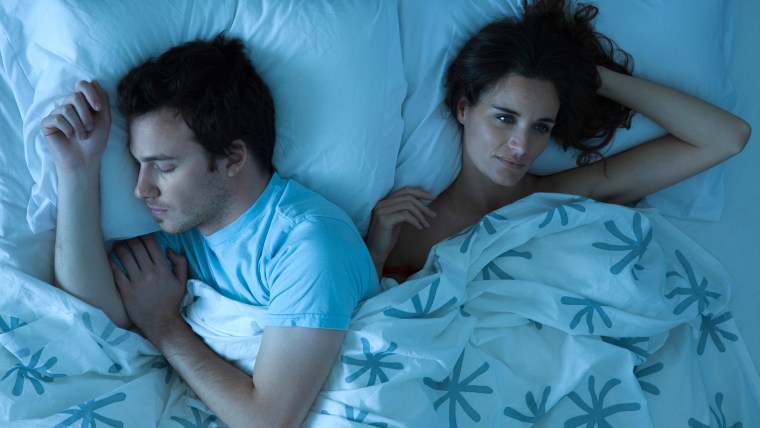The other night I faced a dilemma. My favorite baseball team was on ESPN. And a new episode of my favorite series was on HBO. No, it's not exactly Sophie's choice, especially when you factor in a DVR. But most of us would choose one or the other.
Me, I chose door #3: I turned off the TV and went for a full night's sleep. The preponderance of evidence for both mental and physical health is solidly in favor of consistent bedtimes. And the fewer things you have to stimulate your brain—like lights, noise, or non-procreative sex scenes on "Game of Thrones" — the better you'll sleep.
But merely shutting your eyes on time doesn't guarantee good shut-eye. Sleep apnea can rob you of both quantity and quality. With poor sleep comes a big waist, for two key reasons. You're probably hungrier (and especially hungry for food high in fat and carbs), and you're less likely to get exercise, since you wake up exhausted.
The arrow of causality may also go the other way. "Poor sleep definitely increases the risk of obesity," says Spencer Nadolsky, D.O., a physician in Newport News, Virginia, and medical director of examine.com. "And obesity increases the risk of sleep apnea. It can be a vicious cycle."
You can't get treatment for sleep apnea without a diagnosis, and you can't get a diagnosis without undergoing a supervised sleep study. But Nadolsky says there are three easy ways to tell if you should consider getting one.
1. Do you snore?
If you do, you've probably been told as much by your wife, girlfriend, and/or roommates.
2. Has anyone ever said you look like you're choking when you sleep?
Once again, a bedmate or roommate is the best judge, but you can answer "yes" if you sometimes wake up gasping for breath.
3. Is your neck circumference 17 inches or larger?
"The bigger the neck, the more mass there is to potentially cause obstruction," Nadolsky says. That doesn't mean a big neck causes sleep apnea, or that it results from snoring or choking. But it's correlated with poor sleep, and it's the one risk factor you can measure without help.
If you are diagnosed with sleep apnea, chances are good that your doctor will recommend losing weight, Nadolsky says.
Lou Schuler, C.S.C.S., is an award-winning journalist and the coauthor (with Alwyn Cosgrove) of "The New Rules of Lifting Supercharged."
More from Men’s Health
Sleep Mistakes You Don’t Know You’re Making
The Top 10 Gadgets and Apps For Better Sleep
